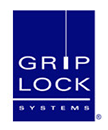Industry News
Demand For Lighting Equipment Slides Again During Second Quarter Of 2009
August 18, 2009
After a steep first quarter decline, NEMA’s Lighting Systems Index contracted an additional 4.3 percent during the second quarter of 2009. The drop marked the third consecutive quarter in which the index has fallen to a new all-time low reading. The index was down even more sharply on a year-over-year basis, plummeting nearly 25 percent, and has registered more than a cumulative 30 percent drop from its cyclical peak in early 2006. For the third consecutive quarter, each major type of lighting equipment making up the index posted lower inflation-adjusted shipments versus the second quarter of 2008, with a particularly sizable year-over-year decline in luminaire shipments.
After seeing macroeconomic activity essentially fall off a cliff in late 2008 and early 2009, economic conditions appear to have stabilized—albeit at a low level. Even the 3-year plunge in new home construction likely came to an end in early 2009, with homebuilding registering modest gains during the past several months. Although this should ameliorate the declines in residential lighting equipment, the fragile state of the U.S. consumer’s balance sheet and poor conditions in the labor market suggest spending on lamps, particularly energy-efficient lamps with a higher first-cost basis, could remain under some downward pressure.
By contrast, the backdrop for lighting equipment predominantly used in nonresidential market applications is expected face several more quarters of weakness as the commercial real estate downturn gains momentum. Office vacancy rates are fast-approaching the levels observed during the aftermath of the dot-com bust and 2001 recession as financial and business services companies have laid off scores of workers while the manufacturing sector’s downturn has produced a new record high in industrial vacancy rates. In addition, capacity utilization rates are at a record low as producers have drastically cut back output as businesses have slashed capital spending outlays and liquidated inventories. Replacement demand for lighting as well as retrofitting to energy-efficient systems will be dampened as firms try to find short-term fixes to cut costs and restore profitability. Even as economic activity begins to recover within the next few quarters, the sheer amount of vacant office, industrial and retail space available will weigh on new construction activity, and by extension keep a lid on demand for nonresidential-use lighting equipment as late as 2011.









































